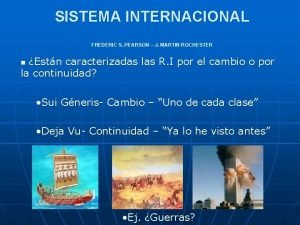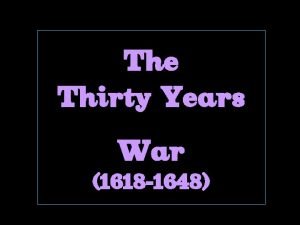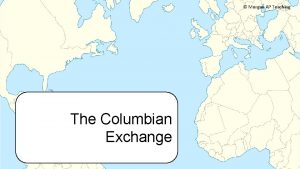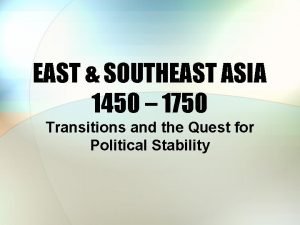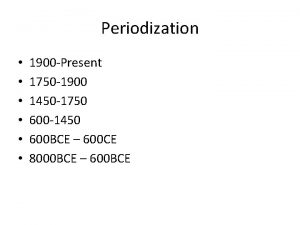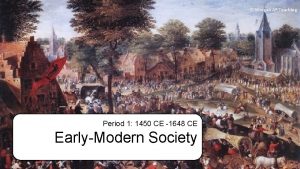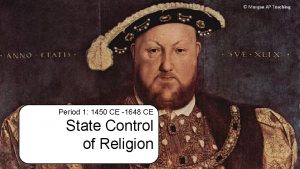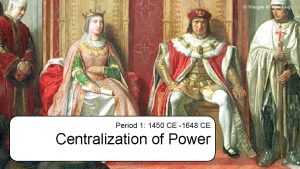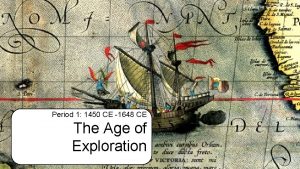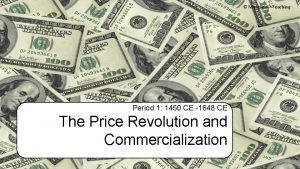Morgan AP Teaching Period 1 1450 CE 1648






- Slides: 6

© Morgan AP Teaching Period 1: 1450 CE -1648 CE Christian & Civic Humanisn

© Morgan AP Teaching Christian Humanism In addition to a focus on secular political life, Renaissance emphasis on the individual and classic knowledge impacted religious life Mostly in northern Europe, thinkers like began reading classical Christian texts, such as the Bible and St. Augustine During the Middle Ages, Christianity had become highly dependent on the pope, and religious rituals, traditions, & relics Upon re-reading classical, early Christian writers, Christian humanists found none of these things in the Bible or St. Augustine’s writings Instead of focusing on pleasing the Church, the pope, and its traditions, these thinkers focused on an individual spiritual life and relationship with God These became characteristics of the Northern Renaissance: an emphasis on regular human life and religious themes (mostly personal relationships with God)

© Morgan AP Teaching Church Reform Calls Two Christian humanists and their works embodied the movement: Erasmus in the Praise of Folly and Thomas Moore in Utopia Both of these men agreed Christianity should serve as a guiding moral philosophy- not a stern set of rules and traditions Both men also wrote heavily on the topic of corruption in the Catholic Church, and highly criticized the ‘sale’ of salvation, Church positions, and nepotism (hiring family) in Church office These thinkers and ideas began question the Church itself and its power, claiming the Church had drifted from the true intentions and beliefs of Christianity

© Morgan AP Teaching Machiavelli With a focus on the individual, and a break from the importance of theology, thinkers also began to question how governments were operated One of the first Renaissance thinkers to question the role of the government was Niccolo Machiavelli, who came from the war-torn Italian city-states In the Middle Ages, politics were ruled by the idea that a king, prince, noble, etc, ought to rule as a just and moral Christian Machiavelli argued that this was an ineffective approach—that an effective ruler would use whatever means necessary to obtain and run a kingdom In his book, The Prince, Machiavelli outlined that in politics, anything goes— it can be just, unjust, brutal, violent, loving--whatever, as long as it works

© Morgan AP Teaching Secularism With an already corrupt Church, by the 16 th century, this message from Machiavelli really stuck with European intellectuals At this point in European history, people truly began to question the legitimacy of the Church and its power over governments One intellectual in particular that agreed with the message of Erasmus and Machiavelli was a man named Jean Bodin was an influential intellectual who believed the corrupt Church, the pope in particular, should not be involved in European politics • Laws, taxes, lands, annointings, etc. Instead, Bodin strongly advocated strong, centralized governments that controlled their own taxes and politics with no Church involvement

© Morgan AP Teaching Civic Humanism The questioning of the corrupt Church and emphasis on secular political life without Church interference spawned a new movement: civic humanism Drawing still from the classics, intellectuals advocated that not only should people seek a well-rounded education, but they should be involved in the community Rather than be an educated hermit, writing about what you think is wrong with the world, intellectuals like Leonardo Bruni advocated being proactive This meant voting, participating in politics, and discussing issues and reforms Because of humanism, Bruni and others emphasized focusing on secular life and politics, as well as being involved as a citizen in shaping their own world
